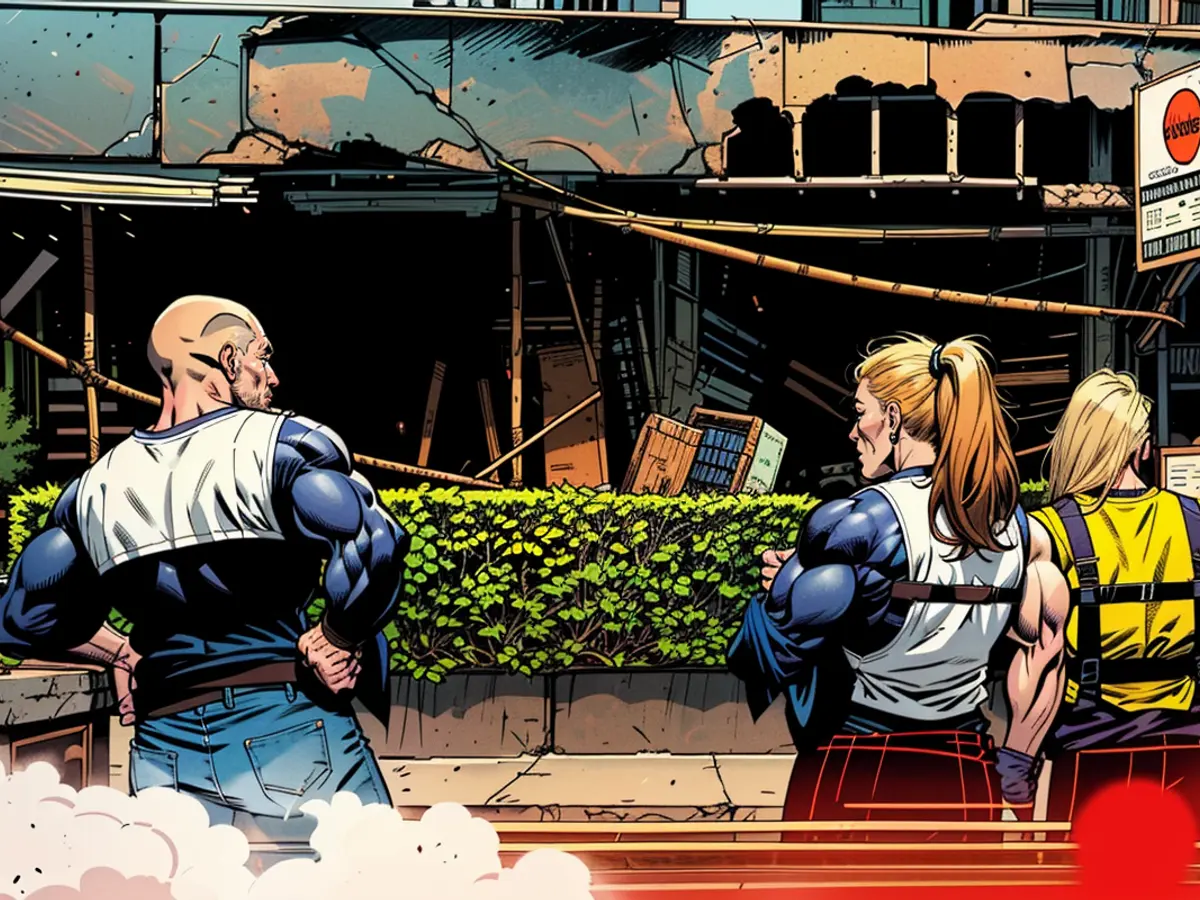Specialists provide insights into the repeated explosions in Cologne
Over the past few weeks, we've witnessed a series of incidents in Cologne and Bonn. On September 25th, an explosion occurred at the intersection of Escher Straße and Longericher Straße in Cologne-Pesch, a café was destroyed, and two individuals suffered minor injuries. On September 21st, a bomb detonated outside a residence in Wachtberg-Adendorf near Bonn, causing property damage. Similarly, on September 18th, window panes of a clothing store in Ehrenstraße were shattered, an incendiary device was activated, and on September 16th, an explosion occurred in front of Vanity Club on Hohenzollernring, causing a stir in the heart of Cologne. This list could be extended back to July.
The law enforcement authorities in Cologne are currently grappling with a new wave of violence among criminal rings. And North Rhine-Westphalia's Interior Minister Herbert Reul, along with Cologne's police chief Michael Esser, are unanimous in their perspective on the root cause of these acts according to their understanding. Reul spoke with the "Süddeutsche Zeitung" and stated that the common thread between these occurrences is "Dutch drug mafia". Esser echoed this sentiment during a press conference following one of the explosions, expressing his belief that such a connection to organized crime in the Netherlands is evident. This term, "Mocro-Mafia", is widely used in the region due to the fact that certain drug dealers originating from neighboring countries are Moroccan. However, experts consistently caution against using this terminology, arguing that it fails to accurately represent the true structure of the organized criminal networks.
Clash among Criminals
Within mere days, 13 suspects were apprehended according to Reul, while more than 60 investigators were actively involved in the case. According to Reul, the initial cases in July revolved around lost drugs, specifically "approximately 300 kilograms of cannabis worth 1.5 million euros, which they wanted back". Reul further stated, "other criminals are being pressured due to these explosions."
Oliver Huth, NRW chairman of the German Criminal Police Federation, drew parallels between this tactic and the methods employed by organized crime in the Netherlands. He told WDR that explosions at doorways are a common occurrence in the Netherlands, happening several hundred times a year. According to Huth, such attacks serve to send a message to the criminal underworld, stating, "We know where you are. We can reach you at any time." Reul also emphasized that "primarily, it's about threats against individuals within the criminal underworld and those involved in drug transactions."
It appears that the primary objective was to cause property damage, while also accepting potential harm to bystanders. The investigators are unlikely to gain any additional information from the detainees. "The individuals we've arrested are largely keeping silent," said Reul. "Even those residing in the damaged properties are remarkably silent, as they have no incentive for these incidents to become public knowledge."
The NRW interior minister also expresses concern that this could be the start of a disconcerting new trend. "Here, a new form of violent behavior is emerging that we've never encountered before and must confront," said Reul, who connects this development to the legalization of cannabis in Germany.
Parallels to the Netherlands
Dutch criminologist Robin Hofmann has estimated that the legalization of small quantities of cannabis in the Netherlands was the "source of the Mocro-Mafia." Experts argue that the currently legal cannabis production in Germany is not sufficient to meet demand, thereby creating a market for illicit drugs. In August, the NRW BDK chairman, Huth, estimated that the annual demand for cannabis is approximately 400 tons.
Reul suspects that drug criminals are taking advantage of the growing market. "I don't believe they'll ever be satisfied and claim they've made enough," the minister said. "They'll want to remain in business. In the Netherlands, where drug policy has also followed a similar path, there's a significant amount of violence related to drugs occurring on the streets."
Huth hopes that the investigative efforts of local authorities will yield positive results and serve as a deterrent. In the case of the clothing store explosion, police are studying footage from a surveillance camera at Cologne Central Station in search of a suspect.
There has been a breakthrough hours after the most recent explosion in a café: a suspect has turned himself in to the police today. He is believed to have "connections" to the establishment. The police continue their search for a second suspect, who was observed by eyewitnesses during the night. The investigators currently see no connection between this suspect and the other explosions that are suspected to have criminal involvement.
The Police in Cologne are working tirelessly to address the recent wave of violence linked to criminal rings, as stated by Interior Minister Herbert Reul. Reul believes that the common thread between these incidents is the involvement of the Dutch drug mafia, a belief shared by Cologne's police chief Michael Esser.
In light of the ongoing investigations, the police are closely monitoring any potential leads, as a suspect has turned himself in following the most recent explosion in a café, reportedly having connections to the establishment.






